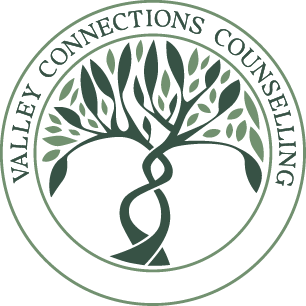
At Valley Connections Counselling, we understand that mood disorders, such as depression and bipolar disorder, can deeply affect every aspect of life. These conditions can influence how you think, feel, and behave, making everyday tasks feel overwhelming or unmanageable. Whether you’re struggling with the emotional lows of depression or the extreme mood swings of bipolar disorder, our experienced therapists are here to provide the support and tools you need to manage your symptoms, understand your emotions, and lead a fulfilling life.
Understanding Mood Disorders
Mood disorders are a group of mental health conditions that primarily involve disturbances in a person’s emotional state. The two most common types of mood disorders are depression and bipolar disorder, but there are other variations as well. Mood disorders can impact relationships, work, and overall quality of life, making it important to seek treatment and support.
Depression
Depression is a mood disorder characterized by persistent feelings of sadness, hopelessness, and a lack of interest in activities once enjoyed. Depression can cause significant emotional and physical symptoms, such as:
- Persistent feelings of sadness or emptiness
- Loss of interest or pleasure in daily activities (including work, hobbies, or socializing)
- Low energy or fatigue
- Difficulty concentrating or making decisions
- Feelings of worthlessness or guilt
- Changes in sleep patterns (either insomnia or oversleeping)
- Changes in appetite (either loss of appetite or overeating)
- Thoughts of death or suicide
Depression can affect anyone, regardless of age, background, or life situation. It is important to understand that depression is not a sign of weakness, but a serious mental health condition that can be treated with the right support.
Bipolar Disorder
Bipolar disorder, formerly known as manic depression, is a mood disorder characterized by extreme mood swings that include emotional highs (mania or hypomania) and lows (depression). These mood shifts can occur in cycles, sometimes rapidly, making it difficult to predict when an individual might experience a high or low. Common symptoms of bipolar disorder include:
- Manic episodes: Elevated mood, extreme energy levels, irritability, impulsive behavior, racing thoughts, increased talkativeness, and risky activities.
- Depressive episodes: Similar to the symptoms of major depression, such as sadness, fatigue, lack of interest in activities, feelings of worthlessness, and thoughts of suicide.
There are different types of bipolar disorder, including bipolar I (characterized by manic episodes) and bipolar II (characterized by hypomanic episodes and more severe depressive episodes). Both types may require medication in conjunction with therapy in order to be effectively managed. It’s extremely important to have your medical doctor or psychiatrist involved in your care when treating bipolar disorder, and our therapists at Valley Connections Counselling can help you to communicate effectively with your medical team.
Why Choose Valley Connections Counselling Centre for Mood Disorder Support?
At Valley Connections Counselling, we take a compassionate, client-centered approach to treating mood disorders. Our therapists tailor treatment plans to meet each individual’s unique needs and goals.
We understand that living with a mood disorder can feel isolating and overwhelming, but you do not have to face it alone. We are here to provide support, guidance, and practical tools to help you manage your symptoms, improve your emotional health, and create a positive path forward.
Our goal is to help you build a deeper understanding of yourself, improve your quality of life, and manage your mood in a way that empowers you to achieve greater well-being and stability.
How to Get Started
If you or someone you love is struggling with a mood disorder, we are here to help. Valley Connections Counselling offers both in-person and online therapy to ensure that you have access to the care you need, no matter where you are located in Ontario or across Canada.
Taking the first step toward managing your mood disorder and finding relief can be transformative. Contact us today to schedule a consultation with one of our experienced therapists and begin your journey to emotional healing and well-being.
Our Mood Disorders Counselling Services
At Valley Connections Counselling, we provide compassionate, evidence-based treatment for individuals struggling with mood disorders. Our therapists use a variety of therapeutic techniques to help you manage your symptoms, improve your emotional well-being, and regain control of your life. Our mood disorder counselling services include:
- Individual Therapy
One-on-one therapy provides a safe space for you to express your feelings, identify negative thought patterns, and work through the underlying causes of your mood disorder. Our therapists offer individualized support to help you better understand your experiences and develop coping strategies for managing the symptoms of depression or bipolar disorder. - Cognitive Behavioural Therapy (CBT)
CBT is one of the most effective therapeutic approaches for treating mood disorders. CBT helps individuals identify and challenge negative thought patterns and replace them with more realistic and constructive thinking. By changing your thought patterns, CBT can help you regulate your emotions, manage your mood swings, and improve your behavior. - Interpersonal Therapy (IPT)
IPT is a short-term therapy designed to help individuals improve their relationships and social functioning. It focuses on the connections between mood and relationships, helping you address interpersonal issues such as conflict, grief, and social isolation. IPT can be particularly helpful for those struggling with depression. - Dialectical Behavior Therapy (DBT)
DBT is a type of therapy that combines cognitive-behavioural techniques with mindfulness and acceptance strategies. It is particularly effective for individuals who struggle with intense emotions. DBT helps individuals develop better emotional regulation, distress tolerance, and interpersonal skills, reducing the frequency and intensity of mood swings. - Medication Management and Support
While therapy is a central component of treatment, individuals with mood disorders may also benefit from medication. Our therapists collaborate with healthcare providers to ensure that medication, such as antidepressants or mood stabilizers, is used in conjunction with therapy for a more holistic approach to treatment. We also help individuals manage the potential side effects of medications and track progress with a treatment plan. - Support for Families and Loved Ones
Mood disorders can affect not only the individual but also their relationships with family members and friends. Family therapy or support sessions can help loved ones better understand the disorder, communicate effectively, and provide healthy support to the person experiencing the mood disorder. Family therapy can be a critical aspect of treatment in creating a supportive environment for recovery. - Mindfulness and Stress Reduction Techniques
Mindfulness-based therapies and stress reduction techniques can help individuals manage the emotional turbulence of mood disorders. By learning how to stay grounded in the present moment and regulate emotional responses, individuals can gain greater control over their emotions and reduce the intensity of mood swings. - Crisis Intervention and Suicide Prevention
For individuals experiencing suicidal thoughts or self-harm behaviours, crisis prevention and safety planning are essential. We offer suicide prevention support and work with individuals to develop coping strategies that promote safety and reduce suicidal ideation. If you or someone you love is experiencing a mental health crisis, we are here to provide support and resources.
